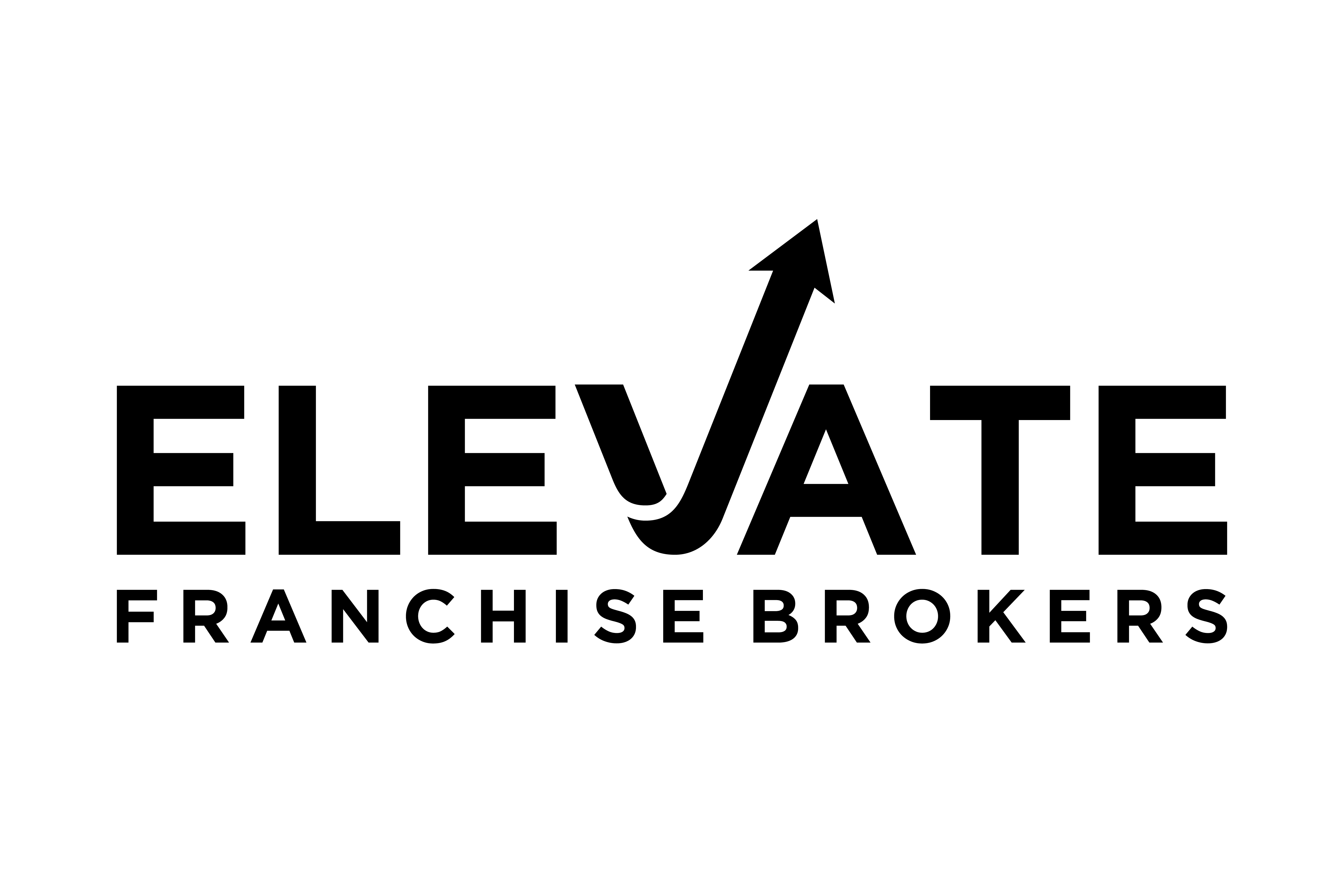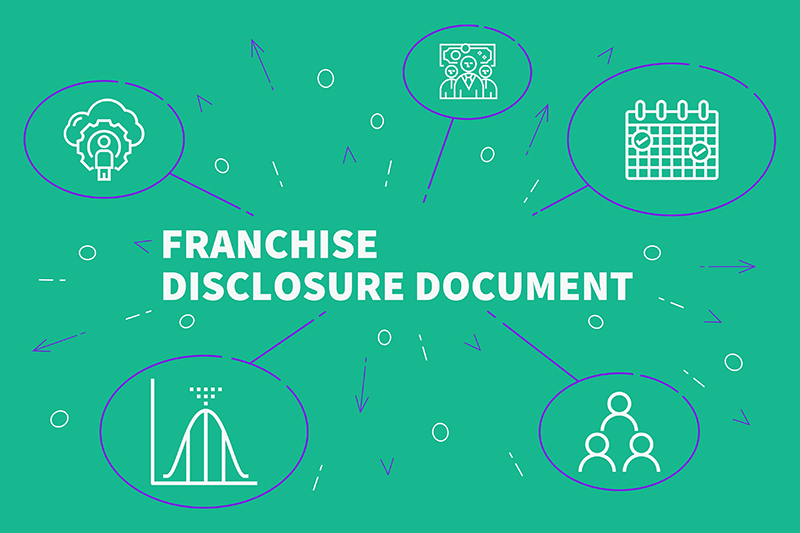The Franchise Disclosure Document, or FDD for short, is a document that the Federal Trade Commission (FTC) requires franchisors to provide to franchise candidates at least 14 days before consummating a sale. The purpose of the FDD is to inform candidates of all the background they need to make an informed decision on whether to buy or not buy a particular franchise.
In addition, 13 states, referred to collectively as "Registrations States: require the Franchise Disclosure Document to be filed with the state. These states include California, Maryland, Michigan, Minnesota, New York, North Dakota, Rhode Island, Hawaii, Illinois, Indiana, Virginia, Washington, and Wisconsin.
The FDD covers 23 different areas. Although the document is lengthy, prospective franchisees need to read the document thoroughly. You will learn much about the franchisor and avoid trouble and misunderstandings later.
This document allows franchisees to make their best-informed decision about the franchise system before entering into any business relationship with the franchisor. Potential franchisees what to go into any arrangement with the franchisor with their eyes wide open, fully aware of what the franchisor is involved in.
When should a Franchisee receive the Franchise Disclosure Document?
The FTC requires that the FDD be disclosed to a potential franchisee no less than 14 days prior to them signing a franchise agreement or paying anything to the franchisor. Therefore, once the prospective franchisee signs the FDD receipt page (item 23 of the document), the 14-day period begins.
What to Look for in the FDD?
Item 1: The Franchisor and any parent companies, predecessors, and affiliate
This section gives the basic information on the legal structure of the franchisor and its principal address. In addition, it covers the type of business the franchisee will conduct and general market information of the products and/or services the franchisee will offer. Finally, it should also include a general overview of the competition.
Item 2: Business Experience
This section will include the business experience of all the franchisor's directors, trustees, general partners, principal officers, and any individuals who have management responsibility relating to the sale or operation of franchise units. You need to be comfortable that the franchisor's leadership team has the relevant experience in its industry
Item 3: Litigation
Covered in this section is information regarding the franchisor's current and past criminal and civil litigation and its management. It is not unusual for a company to have had some legal action against them, but too much of it is a red flag.
Item 4: Bankruptcy
Find information regarding the franchisor and any management who have gone through bankruptcy. If any bankruptcies are listed, this can be a red flag.
Item 5: Initial Fees
The section lists the initial fees franchisees will incur and the factors determining the range of those fees.
Item 6: Other Fees
View a list and description of any other fees or payments that must be made.
Item 7: Estimated Initial Investment
Carefully review the initial investment, viewed in a table format that includes all expenditures the franchisee required to establish the business. Typically, a high and low number will be provided for each item. Carefully note why there is variability in these numbers. The list may also include necessary operating capital and cash funds needed to cover expenses during ramp-up.
Item 8: Restrictions on Sources of Products and Services:
You will find restrictions the franchisor has established regarding the type and source of products or services the franchisee must purchase or lease from sources chosen by the licensor.
Item 9: Franchisee's Obligations
The franchisor will disclose the franchisee's obligations required under the franchise agreement. These obligations are presented as a reference table. They include a summary of all legal obligations, including (but are not limited to) site selection, opening obligations, and any obligations upon termination of the franchise agreement.
Item 10: Financing
This section will identify if the franchisor offers financing and, if so, what the terms and conditions will be.
Item 11: Assistance, Advertising, Computer Systems, Training
This section includes the list of services that the franchisor will provide to the franchisee.
Item 12: Territory:
This section discloses if the franchisee is to be awarded a protected territory, how the territory will be determined, and when the franchisor may operate within the franchisees' territory.
Item 13: Trademarks:
The franchisor will disclose any trademarks within the franchise system. This list includes whether they are registered with the United States Patent and Trademark Office (USPTO), their status, and whether there have been any trademark disputes or conflicts.
Item 14: Patents, Copyrights, and Proprietary Information
This section defines how the franchisee may use any patents and copyrights of the franchisor.
Item 15: Obligation to Participate in the Actual Operation of the Franchise Business
This item covers the obligations that the individual franchisee owner must have in the business's day-to-day operations. These obligations include whether they must work in the franchised business full time as an owner-operator.
Item 16: Restrictions on What the Franchisee May Sell
The franchisor will disclose their control over what can be sold as part of the franchised business. Review this section to see what flexibility you have and if there is an approval process for any exceptions.
Item 17: Renewal, Termination, Transfer, and Dispute Resolution
This section discloses and summarizes the legal rights and obligations regarding renewal terms and terminations and what the franchisee's rights and restrictions are during a disagreement with the franchisor. The majority of agreements are ten years in duration. Ensure you understand what might happen in 10 years and other rights to terminate early.
Item 18: Public Figures
A disclosure will be made if any celebrities or public figures are used and the amount they are paid.
Item 19: Financial Performance Representations
This section is optional for the franchisor. A franchisor can provide information on unit financial performance, typical ranges, and averages. Strong franchisors will give detailed information. Since this is optional, many franchise disclosure documents (FDD) don't include this section or have minimal information.
Item 20: Outlets and Franchisee Information
A list is provided of franchise locations and contact information of existing franchises. This item will also include a table for the number of new outlets opened, terminations, non-renewals, and the number of franchise units that ceased operation. If the number of terminations is high or the percentage of units that ceased operations exceeds 80%, these are red flags.
Item 21: Financial Statements
This section includes audited financial statements of the franchisor for the past three years. If the franchisor is losing money or not making much money, it might be stingy on services that support franchisees.
Item 22: Contracts
This item includes a list of contracts a franchisee must sign with the franchisor. In addition, you will find the template contracts attached as an exhibit. These include a sample of the franchise agreements and related agreements such as a development agreement, site selection agreement, or release agreement.
Item 23: Receipts
The franchisor must include two copies of the receipt page. The franchisee must sign this page to confirm receipt of the document. Once signed, this begins the 14-day review period.
Need More Help with a Franchise Disclosure Document?
If you need help reviewing and interpreting the Franchise Disclosure Document or need help negotiating your franchise agreement, contact Spadea Law. These guys are experts in franchising. If you are looking for the right franchise to match your personal interests and financial goals, contact us or go ahead and schedule a call with us.

